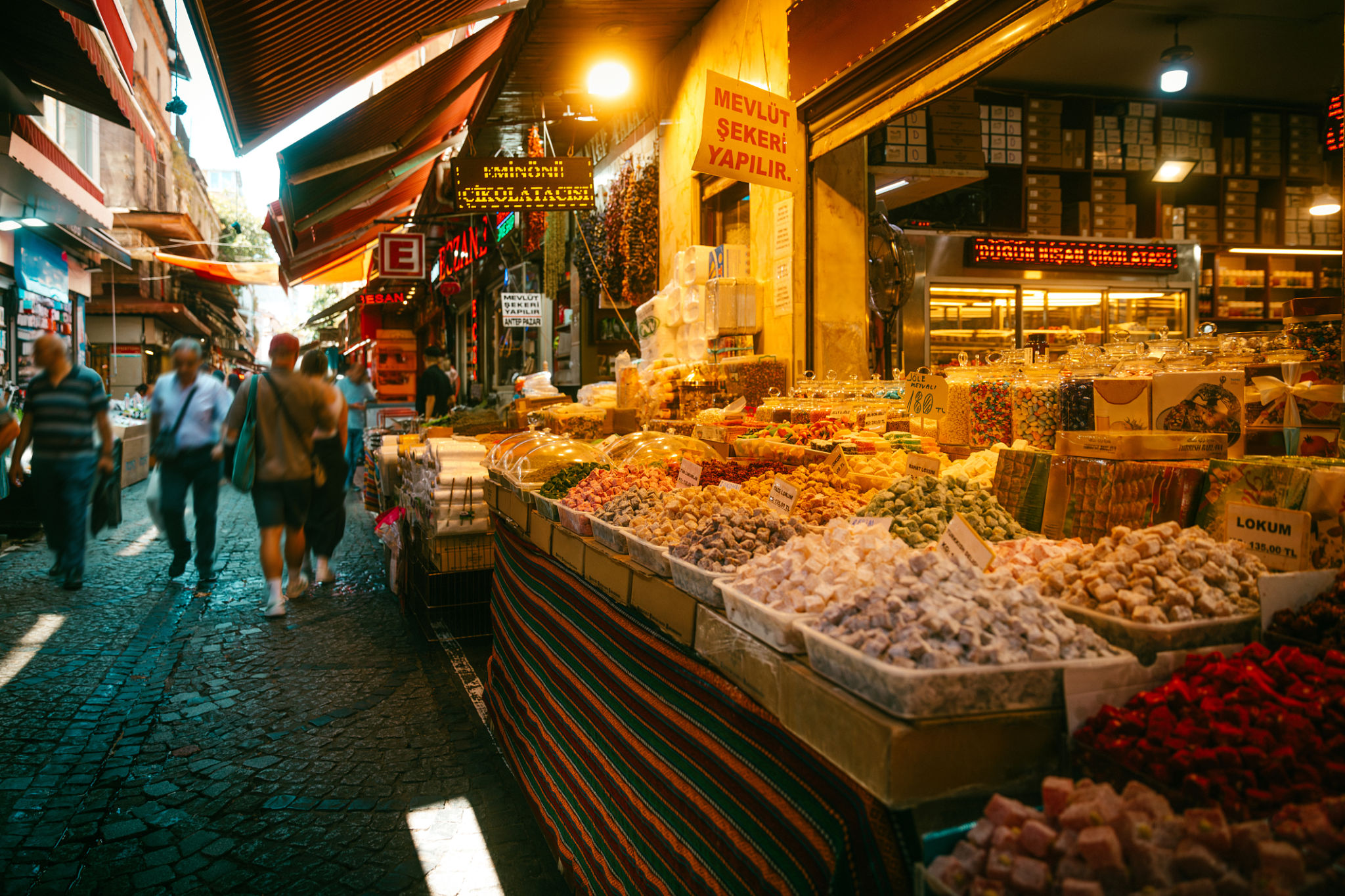Seasonal Trading Opportunities in Turkey: Maximizing Profits Year-Round
EL
Understanding Seasonal Trade Patterns in Turkey
Turkey's unique geographical location and diverse climate zones offer a wealth of seasonal trading opportunities. From the bustling spice markets of Istanbul to the fertile agricultural lands of Anatolia, the country presents a rich tapestry of goods that fluctuate in availability and demand throughout the year. By understanding these patterns, traders can optimize their strategies to maximize profits annually.

Agricultural Products and Their Seasonal Availability
Agriculture plays a significant role in Turkey's economy, with the country being one of the world's largest producers of several crops. Identifying the seasons when specific crops are harvested can help traders plan effectively. For instance, the hazelnut harvest occurs from August to October, while cherries are plentiful from May to July. Understanding these cycles can help in securing the best prices and ensuring supply meets demand.
Additionally, Turkey's vast olive groves produce high-quality olive oil, with harvests typically from November to January. Traders should be on the lookout for these windows to engage in lucrative trade deals. The opportunity to export these goods when they are fresh and abundant can lead to significant profit margins.

Tourism and Its Impact on Trade
Tourism significantly influences Turkey's trade dynamics, especially during peak seasons. The influx of tourists increases demand for local handicrafts, textiles, and specialty foods. Traders should capitalize on this by stocking up on popular items ahead of the tourist rush, which typically peaks from June to August. Additionally, the shoulder seasons in spring and autumn also present opportunities as visitors seek cultural experiences and local products.
Working closely with local artisans and suppliers can ensure a steady supply of high-demand items such as carpets, ceramics, and jewelry. Moreover, offering unique experiences or products that reflect Turkish culture can attract both tourists and global buyers.

Textile Industry Opportunities
The textile industry is another significant sector in Turkey, with both seasonal and perennial demand. Fashion trends often dictate the need for specific fabrics and garments, aligning with global fashion weeks and seasons. Traders who keep abreast of these trends can import or export materials accordingly, maximizing profit margins.
Winter months see an increased demand for woolen products, while cotton remains a staple throughout the year. Collaborating with local textile manufacturers can provide traders with access to high-quality materials that appeal to international markets.
Navigating Economic Fluctuations
While seasonal opportunities abound, traders must also be mindful of economic fluctuations that can impact trade. Currency exchange rates, tariffs, and international trade agreements play crucial roles in profitability. Staying informed about economic policies and shifts within Turkey and its trading partners is essential for minimizing risks.
Building a network of local contacts and maintaining flexibility in trading strategies can help navigate these challenges. By doing so, traders can adapt to changes quickly, ensuring a steady flow of goods and sustaining profitability.

Conclusion: Strategic Planning for Year-Round Success
To succeed in Turkey's dynamic trade environment, it is crucial to plan strategically around seasonal opportunities. By understanding the cycles of agricultural production, tourism, textile demands, and economic factors, traders can position themselves advantageously. Leveraging these insights will enable businesses to capture maximum profits throughout the year while contributing positively to Turkey's vibrant economy.
